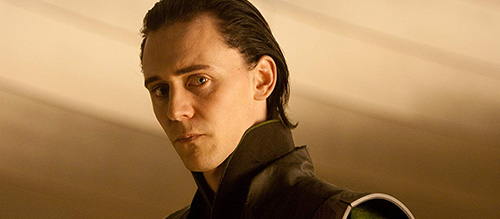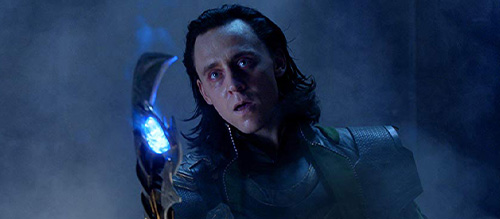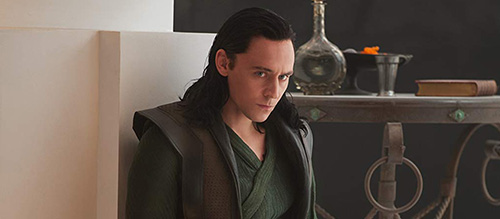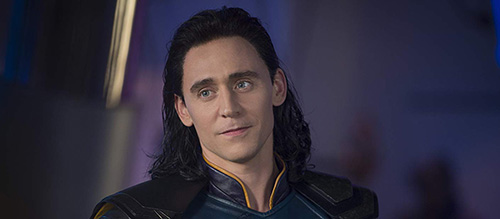Loki: The Development of One of Marvel’s Greatest Villains
With the long-running original Marvel movie saga culminating with Avengers: Endgame, it seems like there is no time like the present to assess and pay tribute to one of the studio’s most noteworthy and influential villains: Loki.
The brother of Thor, played by Tom Hiddleston since Thor in 2011, has been central to the God of Thunder’s solo franchise and has even become a go-to name for Avengers movies, most notably playing the villain in the studio’s debut team-up The Avengers in 2012.
His entanglement with the centre-most characters of Marvel lore have made him one of the most recognisable and highly respected characters in the whole of superhero cinema. In this article, we’ll follow the development of this now iconic character from a brother to a man lacking a place to belong, to the meanest guy in the galaxy and right back around again.
Warning: this article contains spoilers for Thor, The Avengers, Thor: the Dark World, Thor: Ragnarok and Avengers: Infinity War.
Thor (2011) – Loki’s Debut
We first see Loki in a flashback of Thor as a child, the two brothers joyfully playing and then listening to Odin talk about the future and the responsibilities of being a good king. Both kids are eager to be worthy of Odin’s expectations to defend Asgard, but Thor’s destiny is made clear from the beginning: he is to be the king of Asgard.
Child Loki is shown, importantly, to be more shy than his somewhat obnoxious sibling, planting seeds for his dastardly tactics later in life, but it’s quite clear that during his youth he did not hate his brother. It’s pointed out that most of what we are to see will be the result of the parenting of their King and Queen father and mother, that the circumstances which cause them to grow apart will not be the choice of the brothers themselves.
In the film’s present day, Loki arranges a break out of Frost Giants in Asgard during Thor’s coronation, something forcefully pushed home by the choices of director Kenneth Branagh behind the camera and actor Tom Hiddleston’s acting choices in front of it. It’s assumed Loki doesn’t believe his brother is wise enough to be a king, with the underlying nature of Loki’s self-assurance and ego coming to the fore when he reinforces Thor’s ambitions for revenge to his face and then lambasts the plans as “madness” in public – welcome, the God of Mischief.
Even here, Loki doesn’t hate Thor (telling his brother he loves him dearly), but resentment is soon set alight by the revelation that Loki is not Asgardian but instead an adopted Frost Giant bound to a life away from the throne he has sought all his life. Loki is quickly established as an outcast, the core to his relateable villain persona, with his actions from this point seeming more understandable even in the midst of his viciously resentful motivations. To Loki, it’s easier to start over than to adapt to his newly realised standing within his adopted family.
There’s a scene where Loki confronts Odin about his birth – an acting masterpiece by Hiddleston. With tears in his eyes, he yells at Odin that he was just another tool in his hands ready for when he would have needed him. Odin’s reaction is also very emotional, which we know is somewhat out of character, with him falling into the so-called “Odin’s sleep” out of the shock and distress caused by his son’s actions. If the two had been afforded the opportunity to finish their confrontation, perhaps things would have gone very differently, perhaps the events of Thor would not have occurred.
This event is in fact a turning point for Loki’s character, as from here he only cares about gaining more and more power, getting back at Thor in the process by taking away his throne and ‘his precious Earth’ (as he says in The Avengers – 2012). Loki was used to form an alliance, so why shouldn’t he be angry? His entire existence is a political convenience – this is understandable to us, sympathetic even. This cannot condone his actions or be an excuse for how nasty and evil he became, but it does accurately illustrate his internal turmoil and the reasons for him to become how he eventually is in The Avengers (2012).
Thor is filled with moments that showcase Loki’s unique and mischievous talents, the Prince convincing Thor that Odin is not in Odin’s sleep but is in fact dead, and that Thor is to blame. By the time Thor learns of the truth, Loki has unravelled to the point of utter viciousness and desperation, his self-harming behaviour pushing him further and further into darkness, the rage and lack of control Hiddleston presents in the scene being key to illustrating the desperation beneath the bad. Here, he surrenders to his anger and rage, effectively stamping his ticket to his own demise.
The crux of Loki’s story occurs in the film’s conclusion however, where even after abandoning himself to evil and rage he still reaches out for Odin’s approval, the King of Asgard’s refusal to accept Loki causing his son to cast himself into the abyss of the universe both physically and metaphorically. Loki’s decision to fall into the unknown of space ends Thor’s journey but he only becomes worthy at the cost of his closest ally, a theme that will replay itself in future movies. Loki, like Thor, must learn to accept his duty, albeit a different one to that he first saw for himself…
The Avengers (2012) – Evolution Into A Complete Villain
The Avengers was always going to be about the heroes at the centre of the concept, but the picture actually opens with its villain Loki. The God of Mischief, angry and fallen into madness from his last confrontation with Odin, has found a new purpose in avenging Thor, ironically the mirror image of the Avengers’ task. Most importantly, Loki’s choices in this film will lead to his death in Infinity War, The Avengers acting as something of a 2nd act for the character.
It’s established fairly early on that Loki’s pact with the Chitauri is one in which he does not have control, the group threatening to kill him if he does not succeed. Loki is determined to take Thor’s treasure of Earth, but he remains somewhat sympathetic in doing so because of this, endearing himself to us even in the midst of his apocalyptic anger.
The most emotional and meaningful scenes featuring Loki in The Avengers are, much like in his other films, his dialogue with Thor. Though fleeting, the exchange between Loki and Thor on Earth when Thor attempts to take Loki back to Asgard is based in brotherly love, Thor pleading with his brother even in spite of his recent actions. It’s clear that Thor still considers Loki to be his brother even if Loki can no longer see it, but Loki is lost to misplaced ambition or, more accurately, to his pursuit of belonging – he even says in the scene that he’ll prove himself as Odin’s son.
As the film progresses and Loki establishes the upper hand in his war with Earth, he has another important confrontation with his brother, Thor this time offering one last opportunity for redemption during the movie’s climactic battle.
“It’s too late”, Loki claims as Thor pleads with him to stop. It is through these three words that we’re given insight into his own perception of the universe he inhabits; one that is deeply unkind to him. This not only enforces his villainous status in this picture but also issues reminders of his previous arc in Thor, Loki still suffering the effects of losing his life purpose, family and sense of belonging.
In this confrontation, Loki almost hesitates, the Joss Whedon directed close-up showing him to be almost crying. This scene, which illustrates the struggle inside of Loki, helps us to link the wars he rages with the wars within himself, the God in a man’s world having otherworldly power to play out his inner turmoil on a planetary scale. Loki expresses that Thor can no longer appeal to sentiment, Loki’s position as outcast son and prince brought to the fore ahead of his decision to maintain his fight, to seek control.
Loki of course loses in his battle to control earth, owing to the unforeseen bravery of Tony Stark (Iron Man), and is whisked away to Asgard by Thor to face punishment for his crimes. By the end of The Avengers Loki is down and he’s lost everything, but he’s home. And home is where we find him in Thor: The Dark World.
Thor: The Dark World (2013) – Loki’s Path of Growth
In this film, we find Loki where we left him: in chains, brought to face Odin’s judgement for his crimes committed on Earth.
We don’t actually see him in action until about the 35 minute mark when we are immediately aligned with his point of view, the somewhat endearing villain (by this point a fan favourite) looking out from a cell towards other prisoners in one of Asgard’s jails.
The first contact Loki has is with his mother, this choice to quickly realign Loki with his central family group offering hints at fixing the broken relationship caused in the first Thor movie. He rejects her pleas, but his reestablished presence in their lives is brought to the fore, Loki reaching out for his mother’s hand as the hologram disappears.
The point that lights the match in The Dark World is the death of the Queen, Thor’s mother and Loki’s adoptive mother. This event, which sends Asgard into mourning, reunites the two brothers as Thor requires Loki’s assistance to leave Asgard through a secret path in search of revenge. The meeting between the two brothers here perhaps shines more of an insight into Loki than at any other point in the movies, his true sadness and grief masked to his brother via a more confident hologram, the real Loki trapped within his own image, the fulfilment of his wish to be truly excommunicated from his family feeling much more brutally horrific in reality than he had anticipated. When the hologram disappears, Thor bares witness to the rubble that remains of Loki’s life, the villain of two previous movies now the most sympathetic character in this second franchise entry.
Many quips, witty exchanges and sarcastic comments later, and it’s clear that the issue between Thor and Loki is that neither man can trust one another given their histories of keeping monumental secrets from one another.
Thor’s “I wish I could trust you again” is responded to with “trust my rage” by Loki in the midst of their reconciliation, the foundations of their life-long brotherhood holding strong even after such horrendous events. Thor can’t trust anything Loki says or does, but he can trust that he knows the parts that form the foundations of Loki’s character, and trusting Loki’s rage is something he can do.
Thor: The Dark World wasn’t as well received as a lot of other Marvel Cinematic Universe entries, but seeing Loki and Thor team together against the Dark Elves was very good fan service and perhaps the best example of Marvel pulling off a loveable anti-hero. It is because of this and the question of whether Loki was motivated by love and respect for his brother or his own selfish pursuit of freedom and the throne that the film’s conclusion, which sees Loki embody Odin’s likeness to finally take rule of Asgard, brings so much intrigue and joy.
We will also know soon what Loki did to Odin in Ragnarok…
Thor: Ragnarok (2017) & Avengers: Infinity War (2018) – A Path Towards Redemption
Thor: Ragnarok picks up where the last Thor instalment left off – Loki is on the throne of Asgard.
As ruler, he is careless about state matters and does not bother at all about the chaos of the nine realms; he just has fun impersonating Odin and painting himself as a benevolent ruler and the savior of Asgard – a hilarious addition to the Odin-son saga that sought to quickly erase much of the second film (which Thor actor Chris Hemsworth reportedly hated). Almost immediately Thor discovers that Loki is performing as Odin and the reset button is well and truly hit, comedic shenanigans set forth with Thor’s insistence upon Loki taking him to wherever he has deserted their father.
In the reuniting of the two sons with their father, Odin makes the point of calling both Loki and Thor “my two sons”, firmly bringing the Loki story-arc to a conclusion and affording the character the opportunity thereafter to find redemption with regards to Asgard and, most importantly, with regards to Thor. Unbeknownst to us, it would be the satisfying arc conclusion we didn’t see killing the character in the movie that followed… Infinity War.
Infinity War is the final stage of Loki’s character arc, Tom Hiddleston’s character already undergoing redemption in Ragnarok and needing that one last act of honourable defiance to solidify him as an ally to Thor once and for all.
At the beginning of the film, Loki chooses the life of his brother over that of the Tesseract knowing that he may plunge the universe into chaos by doing so and embracing his death in turn. Coloured with typical Loki trickery, the act of sacrificing himself to his former master Thanos in order to save Thor illustrates Loki’s overcoming of his darkness, the demons that plagued him quite literally exchanged for the light of the love given to him by his adoptive family. Here, Loki effectively tells Thor that above Earth, the Tesseract or indeed the universe, it is family (or more accurately his brother) that means the most to him, and that he’s willing to give his life to prove it.
Prove it he does, and Loki becomes one of the first casualties of Thanos’ reign of terror, the God of Mischief playing his final trick.
Or has he?
Perhaps the biggest question to come from the scene – other than “is he really dead this time?” – is “why did Loki take the Tesseract in the first place? Was he not redeemed in Ragnarok like we thought he was? Does he know something we don’t know?
Perhaps this is something to be theorised over in the future or, perhaps more realistically, this moment simply serves as the final reminder of Loki’s ongoing internal struggle, the taking of the Tesseract emblematic of a character eternally at odds with himself, the good overcoming the bad at the most testing of moments to prove that evil may have consumed him at different stages but that it never owned him.
“I assure you brother, the sun will shine on us again.”
Will Loki’s death be another fake one, or will his inclusion from here on out be played out in flashbacks? Can a character this remarkable be truly gone for good? Let us know your opinions in the comments!
[DISPLAY_ULTIMATE_SOCIAL_ICONS]





